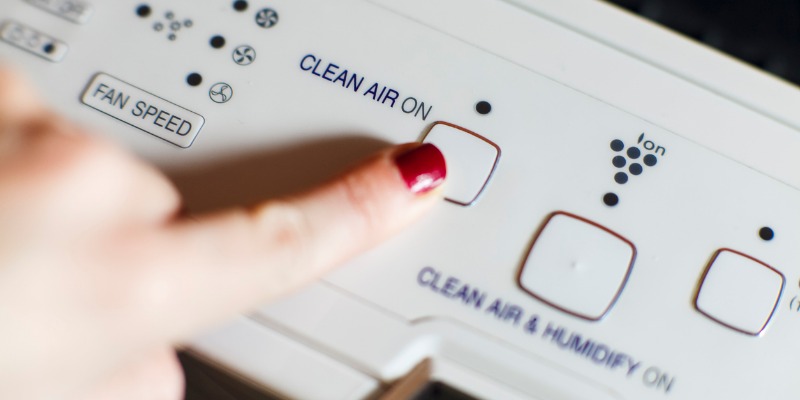
When do you change your air filter? Do you leave it for months at a time and replace them only when you begin to see dust piling up on the furnace vent?
Well, if you wait until you see dust, you’ve waited too long. But how can you know when to change your home filters. And on top of that, how can you know which air filtration system is best for your home and family?
For those who suffer from respiratory conditions, allergies or sensitive skin, it’s no surprise that proper home air filtration can be a matter of life and death. But, even the healthiest people can benefit from allergen-free and dust-free air.
Most families have a standard furnace filter in their home, but there are many different options to choose from.
There are four furnace filter types to consider when looking for a new home air filter.
Electrostatic furnace filters create a static that attracts air pollutants to the filter, trapping them until the filter is cleaned.
Permanent filters are meant to be washed and reused multiple times, which is cost-effective and reduces waste.
Pleated filters are especially helpful for removing allergens from the air during peak allergy seasons.
Disposable filters are disposable, meaning you use them once and throw them away. This makes them the most affordable home air filter available, however this also makes them the least effective option.
High Efficiency Particulate Air (HEPA) Filters are consistently rated as the top filtration products by users and professionals.
These HEPA Filters can remove up to 98% of air pollutants in your entire home, which means that if there are any respirational health problems present in your home, this air filter is highly recommended.
Ultraviolet (UV) Filters are normally a built-in component to an electronic air cleaner, because the UV light kills airborne bacteria and viruses, that can be harmful to your family.
Hospitals commonly use Ultraviolet Air Purifiers because of their reliability and quickness to eliminate contaminants in the air.
Electronic Air Cleaners work a little differently than the rest of the home air filtration systems.
These filter systems use an electrical field to trap dangerous particles, dirt and debris like a magnet until the panels are cleaned. This prevents any pollutants from escaping back into the air in your home.
If you think it might be time for an update to your home’s air filtration system, you might be right. Here are some things to consider before making the plunge:
Did you know that indoor air pollution ranks among the top 5 environmental health risks?
And cheap bargain furnace filters aren’t helping. Make the investment, and opt for high-efficiency, superb quality home air filters for your family and your home.
Indoor air quality matters and Appleby Systems is committed to your comfort and safety. Contact us today to find out how our professionals can help keep your family breathing happy.
